- Arakan residents call for air raid warning systems amid surge in junta airstrikes
- Arakan’s Breathing Space (or) Mizoram–Arakan Trade and Business
- Death toll rises to 18 after junta airstrike on Ponnagyun village market
- Regime arrests dozens of Muslims in Sittwe over alleged Arakan Army links
- Over 200 IDPs in Ponnagyun struggle without shelter, food aid
Betel growers in northern Arakan State forced to quit business
In northern Arakan State, betel is mainly grown in Ponnagyun, Kyauktaw, and Mrauk-U townships, and many betel farms were destroyed by the storm. Growers are also struggling to get leaves for propagation.
07 Sep 2023
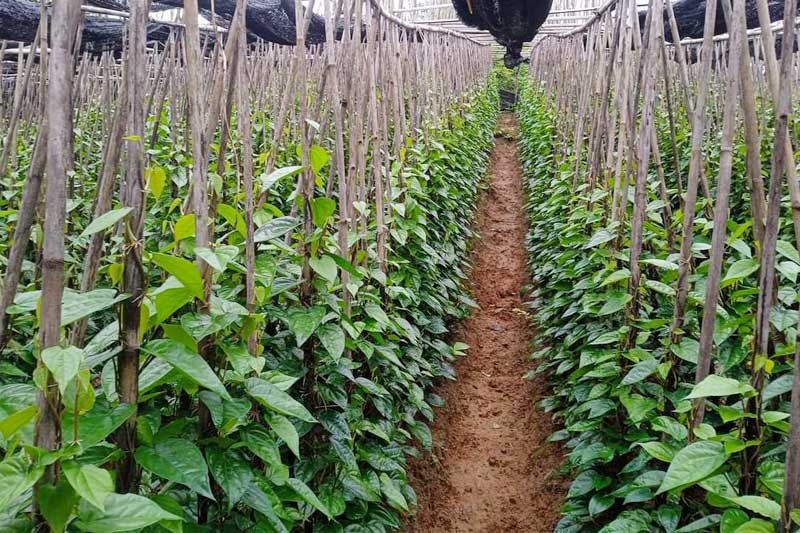
DMG Newsroom
7 September 2023, Sittwe
Storm-hit betel growers in Arakan State face financial constraints and are also short of betel leaves to propagate after many of their betel plants were destroyed by Cyclone Mocha in May.
In northern Arakan State, betel is mainly grown in Ponnagyun, Kyauktaw, and Mrauk-U townships, and many betel farms were destroyed by the storm. Growers are also struggling to get leaves for propagation.
“Cultivation has declined by half since plants were destroyed by the storm,” said betel grower Daw Saw Thein Win from Sinthel Village in the Tawchaungpyar area of Ponnagyun Township.
Many betel growers in Tawchaungpyar have been forced to suspend their businesses due to financial constraints.
“We can’t afford to grow them again after our plants were destroyed by the storm. Half of the population here can’t afford to regrow their betel farms,” said betel farmer U Maung Myint Lin from Poeshuepyin Village in Tawchaungpyar.
Growers in Ponnagyun, Kyauktaw, and Mrauk-U townships said they have to buy betel leaves with roots for propagation from Kyaukphyu, Ann, Thandwe and Gwa townships, and 1,000 betel leaves are sold for 130,000 kyats.
The yield has declined as growers are using non-indigenous plants, said Nyaungbinhla Village administrator U Aung Kyaw Hla.
“Betel plants indigenous to our region can be harvested in four months. Betel plants from those townships [Kyaukphyu, Ann, Thandwe and Gwa],” said U Kan Thein Maung from Poeshuepyin Village.
Currently, the betel leaf market is mainly supplied by growers outside Arakan State.





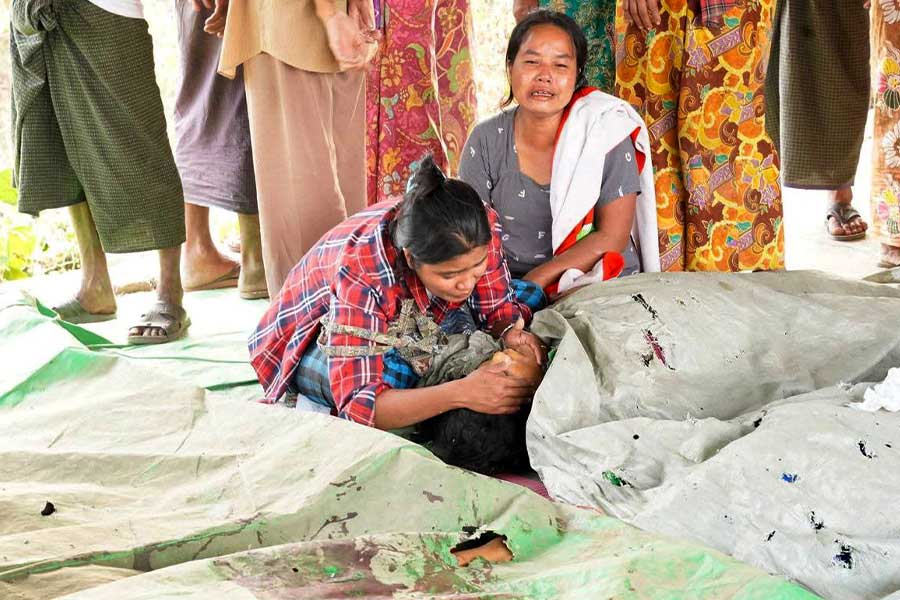
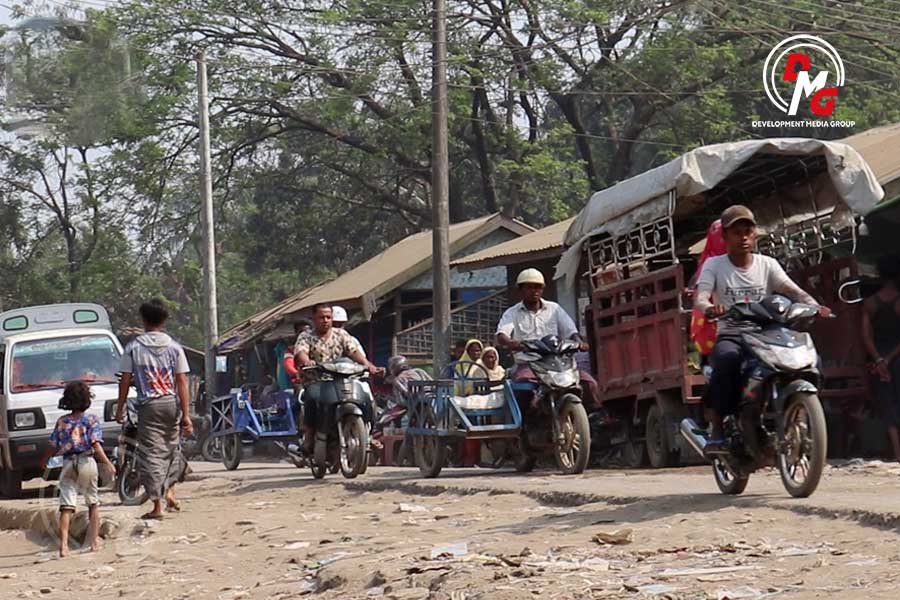
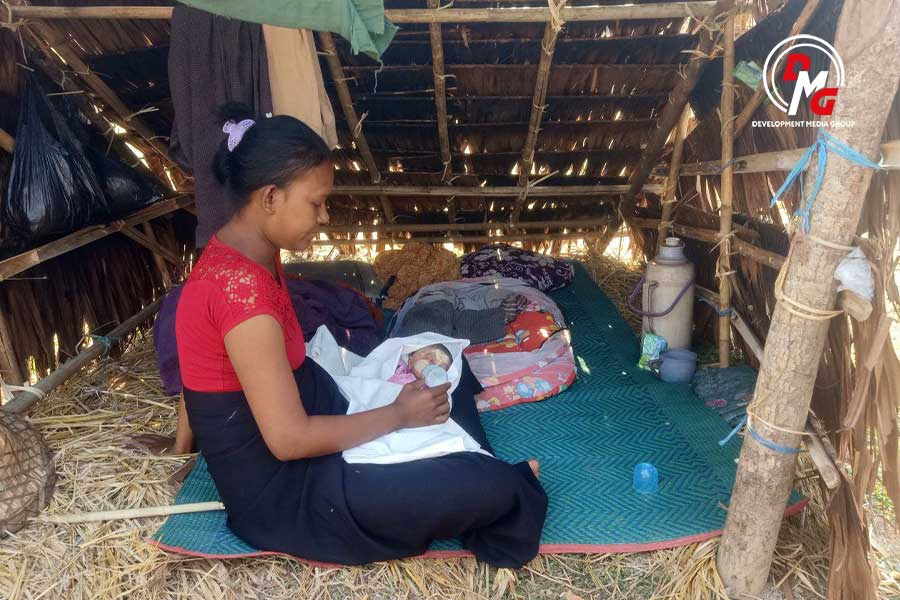
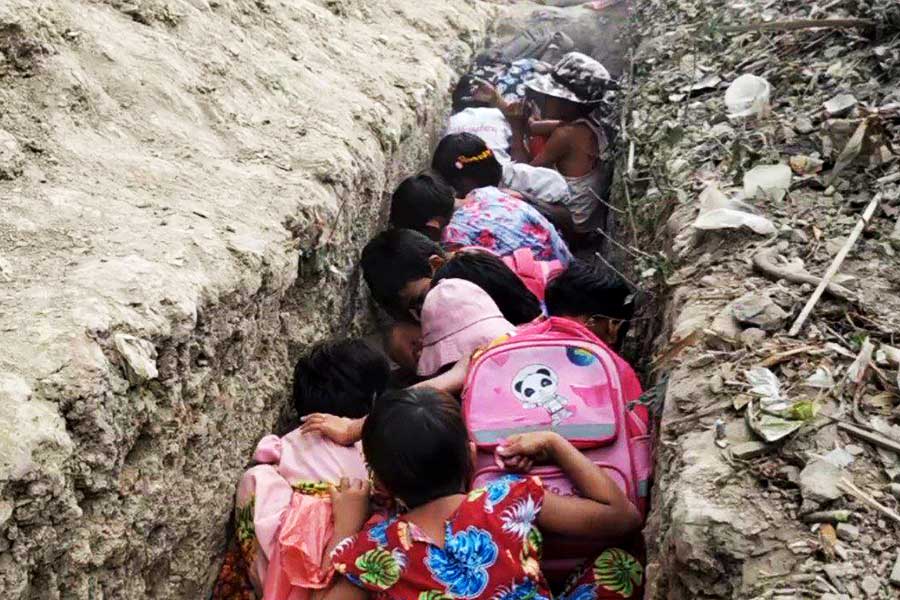








.jpg)